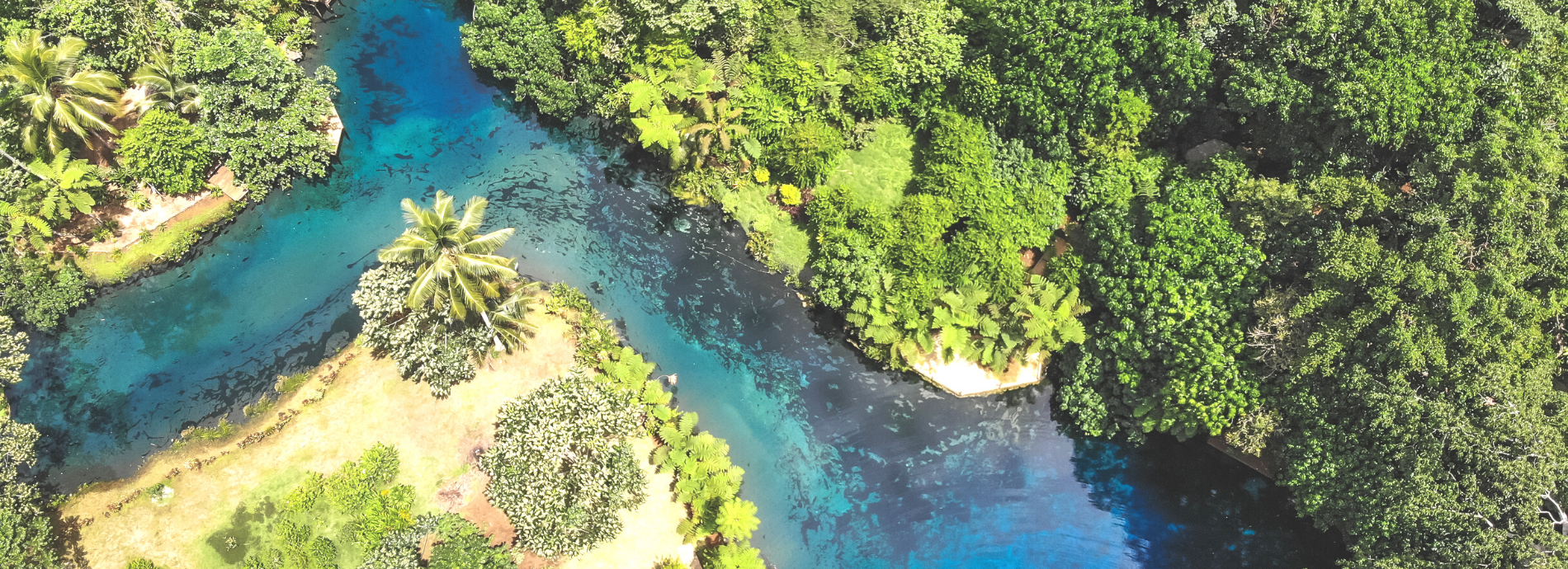
Managing water in a changing climate
The short course will explore climate change mitigation and adaptation, with a specific focus on best practices in water resources management (WRM) and conservation, and water, sanitation and hygiene (WaSH) for achieving water security outcomes in our local and regional community of South-East Queensland and the Pacific. Participants will build knowledge and skills through engaging online sessions which will showcase evidence, case studies, tools and approaches that can support climate change decision making, policy and planning with respect to WaSH & WRM.
The short course series was launched in April 2022 with a cohort from the Pacific region. Further cohorts from Asia and the Pacific will be delivered later in the year and into 2023.
To download a course flyer click here.
Sustainable Development Goals
Griffith University is aligned with the United Nation’s Sustainable Development Goals (SDGs) and is committed to addressing global water-related challenges to ensure a sustainable future where clean water is accessible to all.
Who should enrol?
This online course is for residents of the Pacific who would benefit from upskilling and expanding their knowledge of climate change, water and adaptation and mitigation opportunities. The course is suitable for practitioners, policy makers, decision markers, students, utility directors and employees of water associations in Australia and the Pacific. This course will address critical sectoral issues and provide participants with the practical and technical skills they need to drive positive change in the complex world of water management. It is designed to be highly interactive, encouraging participants to actively engage to discuss issues, share stories and ideas and understand the application of new knowledge in a range of contexts and real-world scenarios whilst building networks.
Gender Equality, Disability and Social Inclusion
GEDSI (Gender Equality, Disability and Social Inclusion) intersections will be interwoven throughout the course, highlighting gendered impacts, and the specific requirements of people with a disability, the elderly and young children, and ethnic minorities with respect to climate impacts. Participants will build a professional network of contacts through their engagement in the course.
Key Topics
- An Introduction to WASH + Water Resource Management
- Climate change and hydrological cycle
- UNFCCC National Climate Resilience and Adaptation Strategies + AR6 IPCC report – implications for regions
- Climate change mitigation and the water sector.
- Water, climate, and Sustainable Development Goal 6 (SDG 6).
- GEDSI and climate change.
- Dealing with uncertainty
- Climate resilience for rural WaSH and WRM, including GEDSI sensitive adaptation and planning tools and approaches.
- Climate resilience for urban WaSH and WRM, including GEDSI sensitive adaptation and planning tools and approaches
- Nature-based solutions for building resilience (i.e. against floods and drought, and for water supply).
- Climate change and natural resources management and land-use planning at a basin/catchment scale.
- Climate change, water and human health (including COVID-19 and GEDSI issues)
- Climate finance, environmental economics, ecosystem service accounting and cost-benefit analysis of climate adaptation options
Learning Objectives
By the end of this course participants will have gained:
- Knowledge and skills to manage water and climate change risks
- Understanding of best practices in water resources management (WRM) and water, sanitation and hygiene (WASH) for achieving water security outcomes.
- Knowledge of GEDSI, gendered impacts and the specific requirements of people with a disability, the elderly and young children, and the nuanced requirements of ethnic minorities with respect to climate impacts.
- Professional contacts and networks advancing climate change and water projects throughout the Indo-Pacific

Course details
Duration: 6 weeks, 4 hours of online learning per week
Location: Online
Cost: This short course is funded by the Australian Government through the Australian Water Partnership and therefore free to successful applicants.
Outcome: Digital Certificate Griffith University Digital Badge
Delivery team: Griffith University (International WaterCentre), Alluvium Consulting, University of Newcastle, Institute of Sustainable Futures at University of Technology Sydney
COHORT 1 - commencing 19th April 2022
Register your interest
The purpose of the following questions are to collate simple, but detailed information on each participant that will enable us to determine who should join the short course training. Decisions will be based on the selection criteria, but with significant attention paid to gender equality, disability and social inclusion and geographical spread of the participants. You will need to upload your CV and a letter of support from your employer.
An example employer letter of support can be downloaded here.
Applications have now closed for the Pacific cohort of the Climate Change and Water Short Course.
For enquiries please email Helen-Louise McDonald - h.mcdonald@griffith.edu.au